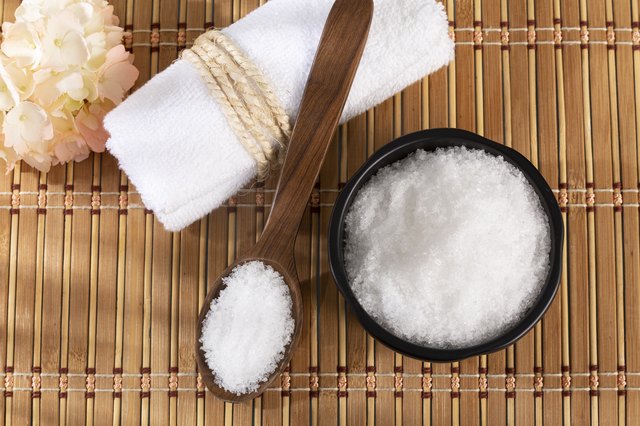As we age, our bodies undergo a number of physiological changes that can affect our health and well-being. However, by understanding the science of aging and taking proactive steps to maintain our health, we can age well and enjoy a high quality of life well into our golden years. In this article, we’ll explore the science behind aging and offer practical tips for healthy aging.
As we age, a number of changes occur in our bodies. These changes can affect our health and well-being in a variety of ways. Here are a few of the most common changes that occur as we age:
Declining Muscle Mass and Bone Density: As we age, our bodies tend to lose muscle mass and bone density. This can lead to a variety of health problems, including an increased risk of falls and fractures.
Reduced Metabolism: Our metabolism tends to slow down as we age, which can make it more difficult to maintain a healthy weight and can also lead to a decreased energy level.
Declining Cognitive Function: As we age, our brains tend to shrink and cognitive function may decline. This can lead to problems with memory, attention, and decision-making.
Changes in Sleep Patterns: Many older adults experience changes in their sleep patterns, including difficulty falling asleep, waking up frequently during the night, and feeling tired during the day.
Increased Risk of Chronic Disease: As we age, our risk of chronic diseases such as diabetes, heart disease, and cancer increases.

While these changes are a natural part of the aging process, there are a number of things that we can do to maintain our health and well-being as we age.
Tips for Healthy Aging
Stay Active: Regular exercise can help maintain muscle mass, bone density, and cognitive function. Aim for at least 30 minutes of moderate-intensity exercise most days of the week.
Eat a Healthy Diet: A balanced diet rich in fruits, vegetables, whole grains, and lean protein can help maintain a healthy weight and reduce the risk of chronic disease.
Stay Socially Active: Maintaining social connections can help ward off depression and cognitive decline. Stay connected with friends and family, join social groups or clubs, and volunteer in your community.
Get Enough Sleep: Aim for 7-8 hours of sleep per night. Establish a regular sleep schedule, avoid caffeine and alcohol before bedtime, and create a sleep-conducive environment.
Manage Chronic Conditions: If you have a chronic health condition, work with your healthcare provider to manage it effectively. Follow your treatment plan, take medications as prescribed, and attend regular check-ups.
Stay Mentally Active: Engage in mentally stimulating activities such as reading, playing games, or learning a new skill to maintain cognitive function and reduce the risk of cognitive decline.
Manage Stress: Chronic stress can have negative effects on our physical and mental health. Find healthy ways to manage stress such as meditation, deep breathing exercises, or engaging in hobbies that you enjoy.
Stay Hydrated: Dehydration can be a common problem for older adults. Make sure to drink plenty of water throughout the day to maintain hydration levels and reduce the risk of health problems.
Stay Up to Date with Health Screenings: Regular health screenings such as blood pressure checks, cholesterol tests, and cancer screenings can help detect health problems early when they are most treatable.
Maintain a Positive Attitude: A positive outlook on life can have a significant impact on our overall health and well-being. Focus on the positives in life, stay connected with loved ones, and find ways to stay engaged and fulfilled in your daily life.
Consider Your Medications: As we age, our bodies may metabolize medications differently. Make sure to talk to your healthcare provider about any potential side effects or interactions with other medications you may be taking.
Limit Alcohol Consumption: Excessive alcohol consumption can increase the risk of a variety of health problems, including liver disease and certain types of cancer. Limit your alcohol intake to moderate levels or abstain altogether.

Protect Your Skin: Aging skin is more susceptible to damage from the sun. Make sure to wear protective clothing, use sunscreen, and avoid excessive sun exposure to reduce the risk of skin cancer and premature aging.
Stay Up to Date with Immunizations: Immunizations can help protect against a variety of diseases, including the flu, pneumonia, and shingles. Talk to your healthcare provider about which immunizations are recommended for you.
Stay Engaged in Your Community: Participate in community events and activities, volunteer for local organizations, and stay connected with friends and family to maintain a sense of purpose and fulfillment.
By taking a holistic approach to healthy-aging and addressing all aspects of physical, mental, and social health, we can maximize our well-being as we age. Remember, healthy-aging is a lifelong process, and it’s never too late to start making positive changes to improve your health and quality of life.
By incorporating these tips into your daily routine, you can improve your physical and mental health and enjoy a high quality of life as you age. Remember, healthy aging is not about stopping the aging process but rather about living life to the fullest at any age.
In conclusion, healthy aging is possible by understanding the science behind aging and taking proactive steps to maintain our health. By staying active, eating a healthy diet, staying socially active, getting enough sleep, and managing chronic conditions, we can age well and enjoy a high quality of life well into our golden years.
















